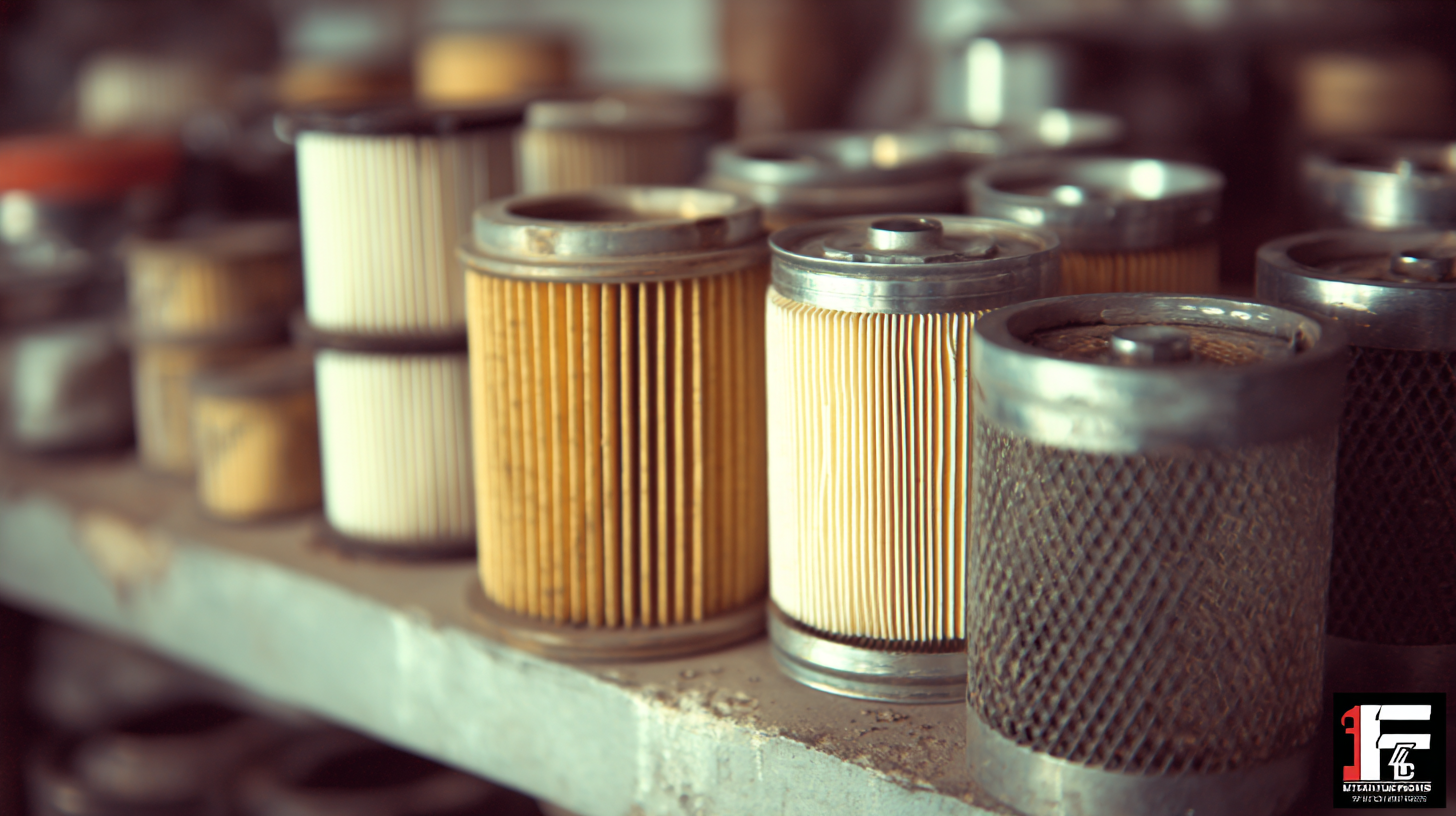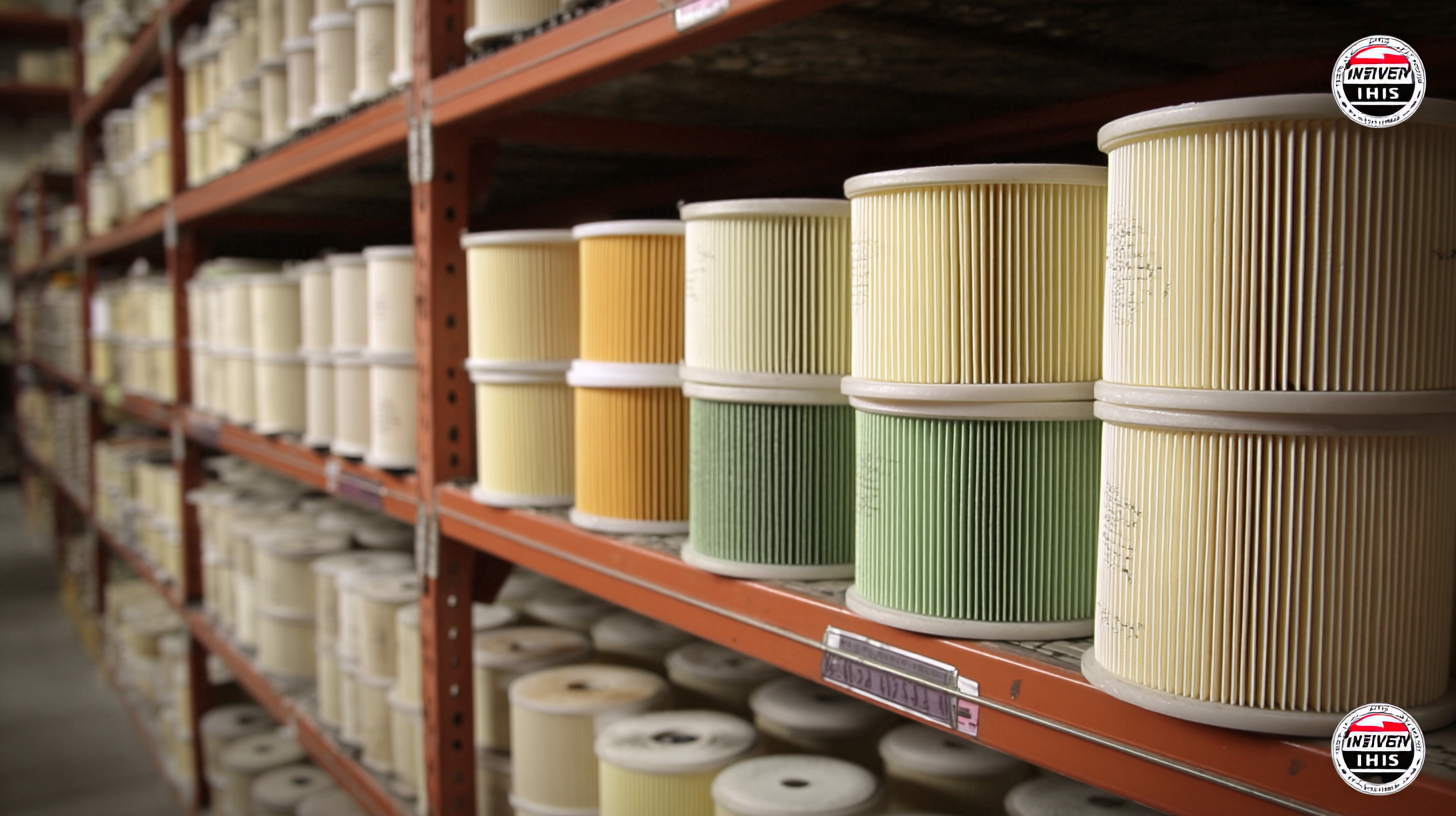
Understanding Global Production Standards for Best Auto Filters
In today's rapidly evolving automotive industry, understanding global production standards for auto filters is crucial to ensure both performance and environmental compliance. According to a recent report by Allied Market Research, the global automotive filters market is projected to reach $21.02 billion by 2027, growing at a CAGR of 6.2% from 2020 to 2027. This exponential growth is driven by the increasing demand for high-quality auto filters that enhance vehicle efficiency and reduce emissions. "精工细造,中国制造,服务世界" encapsulates the commitment to precision manufacturing in China that serves global markets. As manufacturers strive to meet stringent regulations and consumer expectations, adhering to internationally recognized production standards becomes imperative. By aligning with these standards, companies can not only ensure the reliability of their auto filters but also contribute to the sustainable development of the automotive sector worldwide.

Global Trends in Automotive Filter Production: A 2025 Forecast
The automotive industry is undergoing significant shifts as we move towards 2025, particularly in the realm of production standards for auto filters. A noteworthy trend is the increasing emphasis on global harmonization of filter production standards to ensure quality and performance across various markets. This trend reflects a broader push towards sustainability and efficiency, which are crucial in meeting the evolving demands of consumers and regulatory bodies alike. Companies are expected to invest in advanced technologies and materials that not only improve filtration efficiency but also reduce environmental impact.
Market forecasts indicate a growing demand for innovative automotive filters that adhere to these global standards. By 2025, it is projected that the market for auto filters will see substantial growth, driven by factors such as rising vehicle production, stringent emission regulations, and heightened consumer awareness regarding air quality. As manufacturers align their production processes with international standards, the focus will also be on creating filters that can withstand diverse environmental conditions while maintaining high performance levels. This convergence of industry needs highlights the crucial role of effective supply chain management and collaboration among manufacturers to achieve optimal outcomes.
Key Regulatory Standards Impacting Auto Filter Manufacturing
When it comes to the manufacturing of automotive filters, adherence to key regulatory standards is crucial for ensuring product quality and safety. Various international and regional regulations dictate the specifications that auto filters must meet, including emissions control and efficiency criteria. Organizations such as the International Organization for Standardization (ISO) and the Society of Automotive Engineers (SAE) offer guidelines that help manufacturers develop products that not only comply with the legal requirements but also promote environmental sustainability.
In addition to ISO and SAE standards, manufacturers must consider regulations set forth by regional authorities, such as the Environmental Protection Agency (EPA) in the United States or the European Union’s REACH compliance. These regulatory frameworks emphasize reduced harmful emissions, highlighting the importance of filtration systems in minimizing air pollution from vehicles. By following these standards, auto filter manufacturers can enhance product reliability and contribute to overall vehicle performance, ensuring that they meet both consumer expectations and regulatory obligations.
Understanding Global Production Standards for Best Auto Filters - Key Regulatory Standards Impacting Auto Filter Manufacturing
| Standard | Region | Description | Compliance Requirements | Implementation Date |
|---|---|---|---|---|
| ISO 5011 | International | Dust filtration efficiency of air cleaners | Testing according to defined dust loading cycles | 2013 |
| SAE J726 | USA | Air filter test procedure | Adherence to recommended test protocols | 2004 |
| EN 779 | Europe | Test standard for air filters | Filters must meet minimum efficiency levels | 2012 |
| ISO 16889 | International | Filter element test methods | Compliance to test protocols for filtration | 2016 |
| UL 900 | USA | Standard for air filter units | Testing for ignition and flame characteristics | 2018 |
Emerging Technologies Shaping the Future of Auto Filters
The automotive industry is experiencing a significant transformation driven by emerging technologies that are reshaping the production and functionality of auto filters. According to a report by MarketsandMarkets, the global automotive filter market is expected to reach USD 36.49 billion by 2025, growing at a CAGR of 5.2%. This rise is largely attributed to advancements in filtration technologies including the development of high-efficiency particulate air (HEPA) filters and smart filters that can provide real-time data on filter conditions.
To ensure optimal performance, vehicle manufacturers and service providers must embrace these technological innovations. For instance, incorporating nanotechnology in filter design enhances particle capture efficiency while reducing airflow resistance, significantly increasing fuel efficiency. As the industry moves toward sustainability, filters that utilize biodegradable materials are also gaining traction.
Tip: When selecting auto filters, always look for products that meet or exceed global production standards. This ensures that your vehicles not only operate efficiently but also contribute to a healthier environment. Additionally, consider filters with integrated monitoring systems; they can alert you when maintenance or replacements are needed, potentially saving you from costly repairs down the line.

Best Practices for Ensuring Compliance with Production Standards
In the highly competitive automotive industry, adherence to global production standards is crucial for manufacturers of auto filters. To ensure compliance, companies must integrate best practices throughout their production processes. According to a report by MarketsandMarkets, the global automotive filter market is expected to reach USD 28.21 billion by 2026, propelled by stringent regulatory frameworks and increasing demand for efficient filtration systems. This underscores the importance of maintaining high-quality production standards to meet both consumer expectations and regulatory requirements.
One effective best practice includes rigorous testing and quality assurance protocols. The International Organization for Standardization (ISO) has established various standards, such as ISO 9001, which offers a framework for consistent quality management systems. Implementing such standards can lead to a reduction in defects by up to 70%, as reported by a recent study in the Journal of Quality in Maintenance Engineering. Additionally, automakers and filter manufacturers should invest in training and development programs for their workforce, ensuring that employees are well-versed in modern production techniques and compliance measures. This investment not only enhances product quality but also fosters a culture of continuous improvement within the organization.

How to Choose the Right Auto Filter for Optimal Performance
When it comes to maintaining optimal vehicle performance, selecting the right auto filter is essential. Auto filters, including air, fuel, and oil filters, play a critical role in ensuring that your vehicle runs smoothly by keeping harmful contaminants out of vital systems. In the aftermarket industry, the demand for high-quality filters is consistently growing, driven by increasing vehicle ownership and a rising emphasis on vehicle maintenance. It's important to know that these filters come in various types and specifications, depending on the make and model of your vehicle.
To choose the right auto filter, one must consider several factors, including the type of vehicle, its specific filtering needs, and the recommended filters outlined by manufacturers. Understanding the source of the parts is also critical; whether opting for OEM (Original Equipment Manufacturer) parts or aftermarket replacements, the quality can vary significantly. Additionally, the distribution channel—ranging from warehouse distributors to online retailers—can affect the availability and pricing of filters, which is something consumers should look into when making their purchase. Ultimately, investing time in understanding how to choose the right auto filter will enhance your vehicle's performance and longevity.
